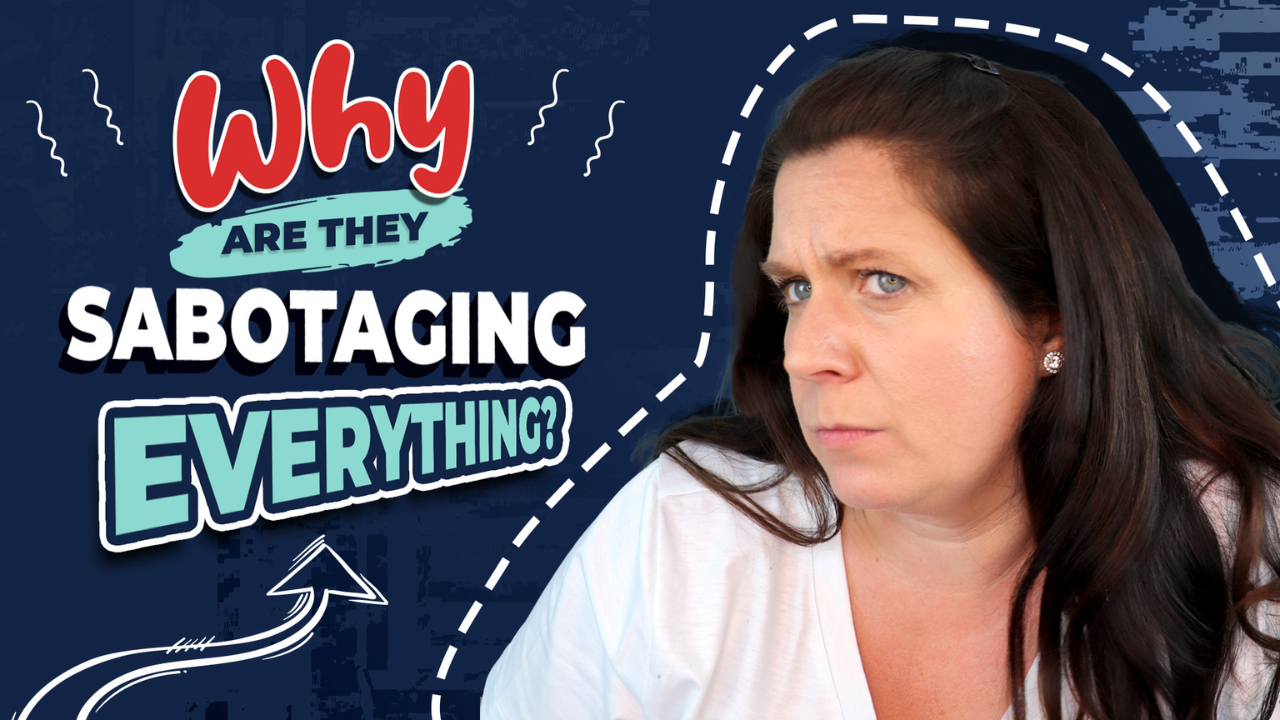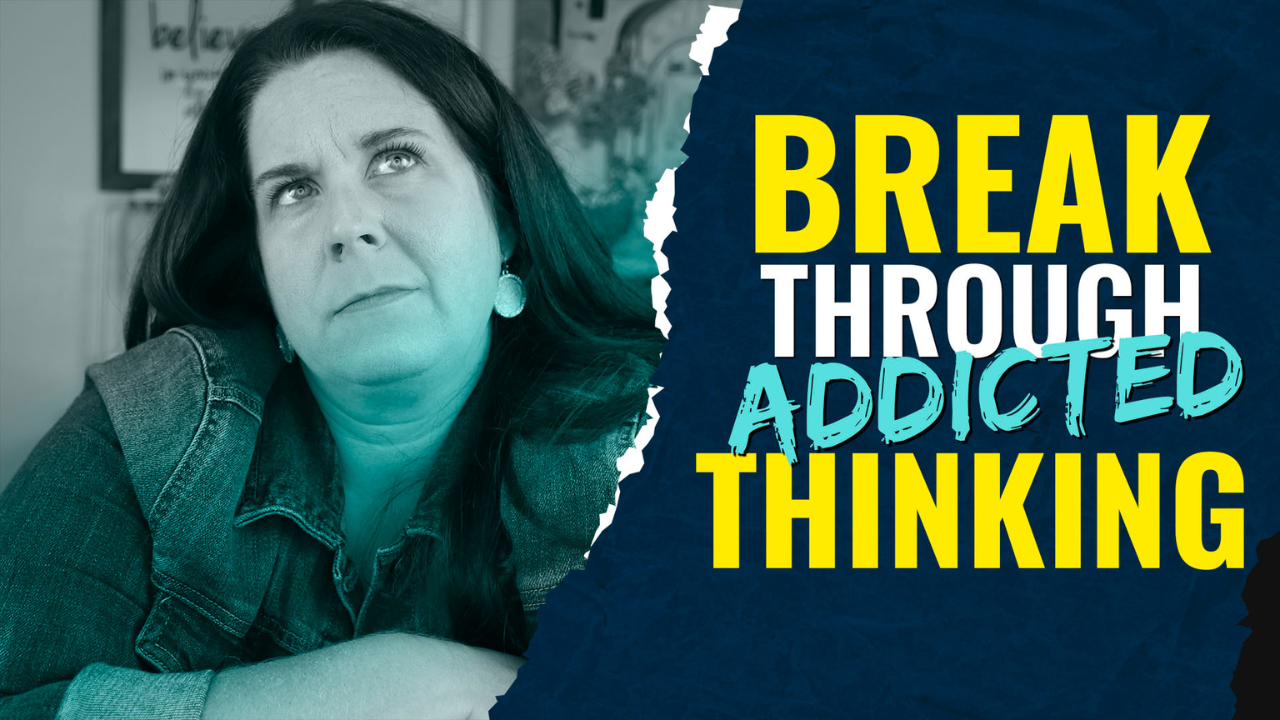Is Someone Else Sabotaging Your Efforts To Help Your Addicted Loved One?
Everyone involved needs to be aligned to influence someone to get recovery. But what do you do when they just won't come into alignment with you, and it feels like family and friends are sabotaging your loved one's recovery?
You're trying to help your addicted loved one recover, but family and friends keep sabotaging your efforts. As a result, everything you do is just a waste of time. It's maddening enough that you're dealing with an addicted person who's not being rational, causing trouble, and making your life difficult. But on top of that, you've got other people either not coming on board or making it worse.
#1. The classic enabler
The first common way you're likely to be experiencing this is if there is another person in the family. Maybe it's your mother-in-law, father-in-law, or spouse. Still, this other person in the family refuses to see the problem, or perhaps they know the problem but refuse to understand the seriousness of the situation.
I'm calling this category the classic enabler. You're trying to allow natural consequences, but they keep:
- running in and fixing the situation
- giving them money
- keeping secrets
- running interference for the addicted person
If you've got a classic enabler on your team, I want you to realize their denial about the situation is a protective defense mechanism for them.
If you stop and think hard about it, there was a time when you were in denial about the situation yourself.
I know you want them to understand the seriousness of the situation and get on the same page, but the faster you try to rush them into seeing the light, the longer it will take them to see it. Like when you confront an addicted person, they start spending all their emotional energy and time defending their choices. The same thing happens if you're trying to engage an enabling person. They'll probably start to think that you're the problem, not the addicted person, and they will work against you at that point.
So what do you do in that type of situation?
Use the same techniques I teach you to get someone with addiction out of denial.
You may practice the CRAFT method or participate in our Invisible Intervention program. Then, with all those same skills you've learned, start applying those techniques to the family.
Once you have that other family member on board, things will move much faster because everybody will be working from the same playbook and going in the same direction.
#2. The withdrawing person
Now there are a couple of other situations where a family member, a friend, or an external person may sabotage your efforts to help your addicted loved one. The withdrawing person-- the person that's sick of the drama and probably angry at the addicted person. And they may even get mad at you for how you're responding to the addicted person because they've had it up to here, and they're sick of it and want to get away from it.
So in that situation, I suggest you allow that person to have some room and don't try to make them get on board with it and be okay with it because they may come around on their own. But, still, if you try to force it just like in any other situation, they will be even more upset, and you will be accidentally fueling those flames.
#3. The fueling person
We've talked about the enabling person; we've talked about the withdrawing person. Let me throw a third one out there, and I'll call this one the fueling person. So this is a different scenario where some external person is not just enabling the situation, not withdrawing from it, but making it worse, which means they're validating, supporting, and encouraging the addicted behavior.
There are several situations where you could see something like this; most commonly, it will be the person's drinking buddy or using friend.
When someone's in this fueling category, it's because they get some secondary gain from this person staying in addiction, and that's pretty obvious when you think about a using friend or drinking buddy.
But what might not be so obvious is when it's sort of indirectly related to the addiction. So, for example, let's say you have a parent struggling with addiction, and kids are involved. The parent struggling with the addiction gets put into the good parent category because they allow the kid to do all kinds of things that the other parent doesn't allow.
When I was thinking about this fueling category, another situation came to my mind that is probably going to surprise you. And that is, sometimes counselors, doctors, and social workers can even fall into the fueling phase. Now, usually, when a counselor or doctor or professional person is falling into the fueling phase, it's not necessarily because they get some gain out of the person's addicted behaviors, but more because they're clueless.
They don't have access to understanding the entire family dynamics in the situation. So usually, what's happening here is the addicted person telling a particular story or narrative about how everybody else is treating them and what's happening. And so the counselor or doctor can validate those feelings and behaviors, not understanding that they're not getting the whole story.
Sometimes people can be in the fueling category because of a lack of awareness and understanding. I think of several situations I've had with clients whose physicians continued to prescribe them addictive meds even after they knew that the person was struggling with addiction.
In that situation, it's easy to jump to a conclusion like, "oh, that's just like one of these pill mill doctors. They make all this money". That can happen and has happened in some situations, but typically it's not because the doctor has some like evil, self-involved plan for why they're doing that. It's usually because of a lack of awareness about addiction in general.
Now, when dealing with a fueling person, you've got to be very careful because if you start to align against this fueling person because you see them as a bad influence, you can get yourself in some hot water.
You'll probably want to talk to your addicted loved one about how this person isn't good for them and they should get away from them. And the truth is people will protect their relationship with this other fueling person longer than they will defend their addiction because they see this person as their friend and ally.
So aligning yourself directly against this other person is not usually the most brilliant move.
Amber Hollingsworth
Watch this video next:


